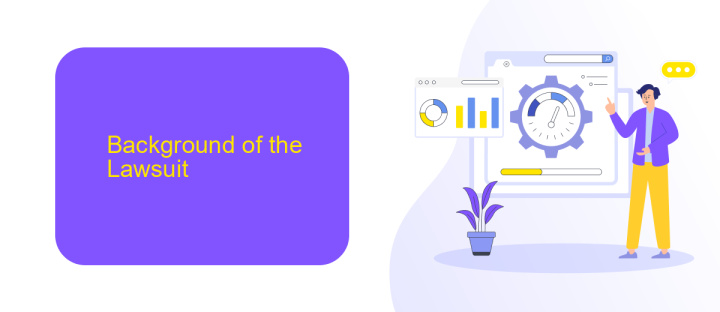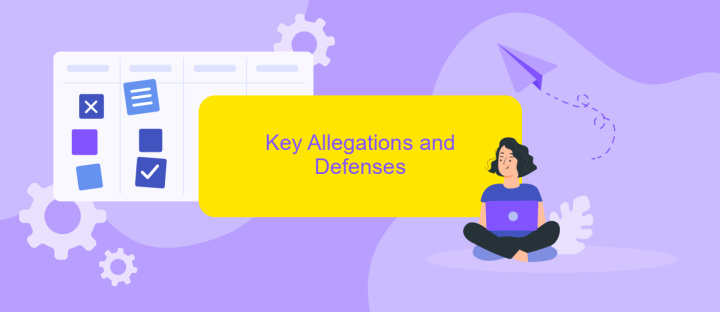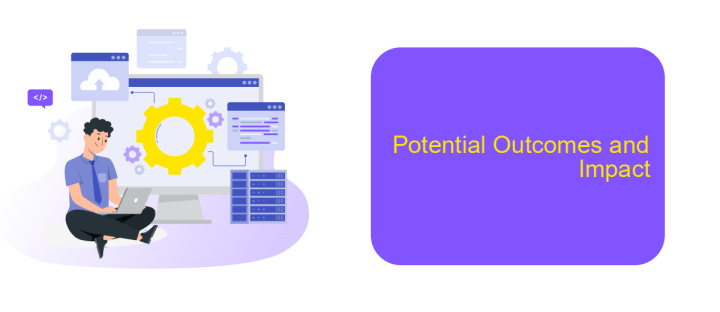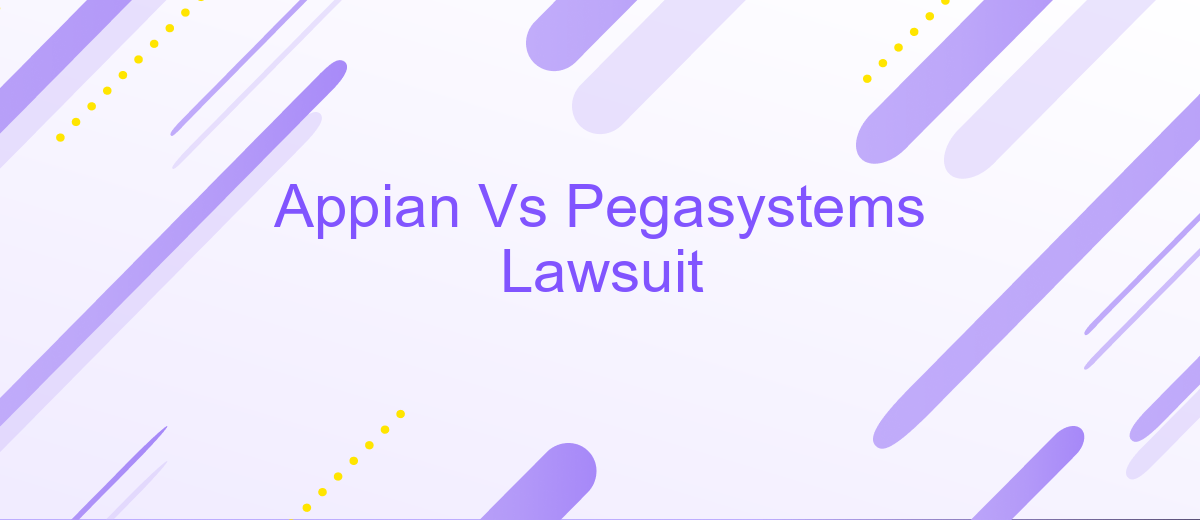Appian Vs Pegasystems Lawsuit
In a high-stakes legal battle, Appian Corporation has filed a lawsuit against Pegasystems Inc., alleging corporate espionage and trade secret theft. The case has garnered significant attention within the tech industry, as it pits two major players in the business process management (BPM) software market against each other. This article delves into the details and implications of this contentious dispute.
Introduction
The legal battle between Appian and Pegasystems has garnered significant attention in the tech industry. Both companies are prominent players in the realm of business process management (BPM) and enterprise software solutions. This lawsuit underscores the competitive nature of the industry and raises important questions about intellectual property and corporate strategy.
- Appian: Known for its low-code automation platform, Appian enables organizations to design and automate their business processes efficiently.
- Pegasystems: Renowned for its customer engagement and digital process automation software, Pegasystems offers robust solutions to streamline business operations.
- ApiX-Drive: A powerful integration service that can facilitate seamless connectivity between various software solutions, enhancing the capabilities of both Appian and Pegasystems platforms.
This lawsuit highlights the intense competition and the lengths to which companies will go to protect their innovations and market share. As the case unfolds, it will be crucial to observe how it impacts the strategies and offerings of both Appian and Pegasystems, as well as the broader BPM and enterprise software landscape.
Background of the Lawsuit

In recent years, Appian and Pegasystems, two giants in the business process management (BPM) and automation software industry, have been embroiled in a high-stakes legal battle. The lawsuit centers around allegations of trade secret misappropriation, with Appian accusing Pegasystems of unlawfully obtaining and using confidential information to gain a competitive edge. The dispute has drawn significant attention due to the prominence of both companies in the BPM market and the potential implications for industry practices and competitive behavior.
The case has highlighted the complexities and challenges associated with maintaining proprietary information in an industry that heavily relies on integration and automation solutions. Services like ApiX-Drive, which facilitate seamless integration between various software platforms, underscore the importance of secure and compliant data handling practices. As the lawsuit progresses, it serves as a critical reminder for businesses to rigorously protect their intellectual property and ensure that competitive strategies are both ethical and legal.
Key Allegations and Defenses

The lawsuit between Appian and Pegasystems centers around several key allegations and defenses, each party presenting a robust case to support their stance. Appian accuses Pegasystems of intellectual property theft, asserting that Pegasystems unlawfully accessed and utilized Appian’s proprietary software to gain a competitive edge. Additionally, Appian alleges that Pegasystems engaged in unfair business practices, including the recruitment of former Appian employees to extract confidential information.
- Pegasystems is accused of misappropriating trade secrets from Appian.
- Appian claims Pegasystems conducted unauthorized access to their software.
- Pegasystems allegedly recruited ex-Appian employees to obtain confidential data.
- Pegasystems defends itself by arguing that any accessed information was obtained legally and through publicly available sources.
- Pegasystems also contends that Appian’s claims are exaggerated and lack substantive proof.
Pegasystems maintains that they have not engaged in any illegal activities and that their business practices are lawful and ethical. They argue that Appian’s allegations are an attempt to stifle competition and innovation. Both companies continue to defend their positions vigorously, with Appian seeking damages and an injunction against Pegasystems, while Pegasystems aims to dismiss the claims and protect their reputation.
Potential Outcomes and Impact

The lawsuit between Appian and Pegasystems could lead to several potential outcomes, each carrying significant implications for the business process management (BPM) industry. A court ruling in favor of Appian might result in substantial financial penalties for Pegasystems and could tarnish its reputation, affecting its market position and customer trust. Conversely, a decision favoring Pegasystems might undermine Appian's claims and potentially impact its competitive edge.
One of the critical impacts of this lawsuit is the potential shift in how companies approach BPM solutions. Businesses might become more cautious in selecting vendors, prioritizing those with strong legal standing and clear intellectual property rights.
- Financial penalties and compensation
- Market reputation and customer trust
- Changes in vendor selection criteria
- Increased focus on intellectual property rights
Furthermore, the outcome may influence the integration solutions market, where services like ApiX-Drive could play a pivotal role. Companies might seek more reliable and legally secure integration services to ensure seamless and compliant business operations, thus highlighting the importance of robust and legally vetted integration tools.
Conclusion
The lawsuit between Appian and Pegasystems highlights the complexities and competitive nature of the enterprise software industry. Both companies have argued their cases with substantial evidence, aiming to protect their intellectual property and market share. The outcome of this legal battle will likely set a precedent for future disputes in the sector, emphasizing the importance of innovation and fair competition.
As businesses continue to rely on robust software solutions for their operations, the need for seamless integrations becomes increasingly crucial. Services like ApiX-Drive offer valuable tools for connecting various applications and automating workflows, ensuring that organizations can maintain efficiency and productivity. Regardless of the lawsuit's outcome, the demand for reliable integration solutions underscores the ongoing evolution and growth of the enterprise software landscape.


FAQ
What was the Appian vs. Pegasystems lawsuit about?
What was the outcome of the Appian vs. Pegasystems lawsuit?
How does this lawsuit impact customers of both companies?
Are there alternatives to Appian and Pegasystems for business process management?
How can businesses ensure their proprietary information is protected when using third-party software?
Time is the most valuable resource for business today. Almost half of it is wasted on routine tasks. Your employees are constantly forced to perform monotonous tasks that are difficult to classify as important and specialized. You can leave everything as it is by hiring additional employees, or you can automate most of the business processes using the ApiX-Drive online connector to get rid of unnecessary time and money expenses once and for all. The choice is yours!

